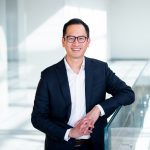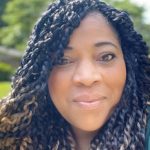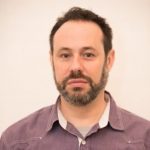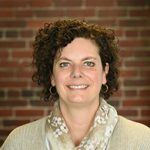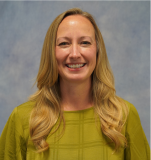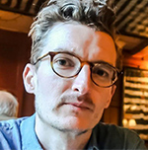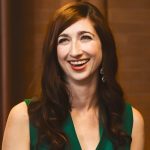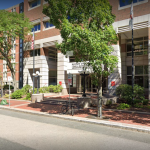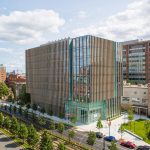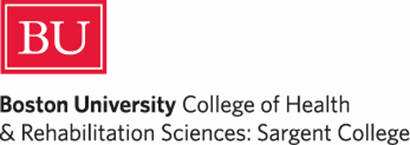2023 Boston Speech Motor Control Symposium
2023 Boston Speech Motor Control Symposium
Overview
The Boston Speech Motor Control Symposium (BSMCS) is a regional conference aimed at providing an accessible and inclusive environment for those near the Boston area to share research involving speech motor control. We also welcome people from outside the greater Boston area – join us for the one-day event, or make a plan for a summer vacation in Boston! This year, BSMCS will take place in-person with hybrid options (talks only) to improve accessibility. We hope that BSMCS will be a great opportunity to bring together students, researchers, and clinicians from the numerous subfields within speech motor control to ultimately highlight new research within these areas, generate new research ideas, and foster faster clinical translation of important findings. This is a one-day conference, with a pre-conference tutorial specifically aimed at trainees (students and post-docs). The conference is sponsored by Boston University’s Sargent College, Delsys, Dysphonia International, and the NIDCD via an R13 Conference Grant. Our program is registered for .55 ASHA CEUs (see below for more information).
Key Dates
January 03, 2023 : Abstract submission/registration/travel fellowship application opens
March 06, 2023 : Abstract submission/travel fellowship application deadline
April 10, 2023 : Authors/travel fellowship awardees notified
April 17, 2023 : Early registration deadline
May 15, 2023 : Late registration deadline
June 11, 2023 : Pre-conference tutorial for trainees
June 12, 2023 : Boston Speech Motor Control Symposium 🔔
Invited Speakers
Registration
Registration opening day: 03 January 2023
Early registration deadline: 17 April 2023
Late registration deadline: 15 May 2023
Registration is now closed. Questions regarding registration should be directed to the BSMCS organizing committee (bsmcs@bu.edu).
The in-person registration fee for BSMCS 2023 is US $60.00 (late $100), or $20.00 (late $40) for enrolled students. The virtual registration fee (talks only) is US $10, or $5.00 for enrolled students.
Note: All refunds will be processed three weeks prior to the symposium date and will subtract 20% of the registration cost for the administration fee.
Information for Presenters
Abstract submission is now closed.
Click HERE for the list of BSMCS 2023 poster presentations.
Poster Presentations:
All posters must be no larger than 36″ wide by 42″ tall. Please note that this is in portrait orientation, NOT landscape!
To be considered for a Poster Award, please email a PDF of your poster to bsmcs@bu.edu by 9:00 am, Monday June 05, 2023.
Podium Presentations:
For podium presentations, please bring your presentation slides on a USB drive or email them to bsmcs@bu.edu. Slides can be uploaded to the computer between 7:00 am – 8:00 am or during the coffee break prior to your presentation.
Travel Fellowships
The Boston Speech Motor Control Symposium will be awarding travel fellowships to undergraduate students, graduate students, doctoral candidates, and post-doctoral trainees. Fellowship awardees will have an opportunity to meet with invited speakers at a special lunch the day of the conference. Interested applicants may apply for a travel fellowship. Fellowship recipients will receive free registration and a $500 travel award.
Questions regarding travel fellowships should be directed to the BSMCS organizing committee (bsmcs@bu.edu).
Travel fellowship submission is now closed.
Note: Those applying for a travel fellowship should not register until they have heard back from the BSMCS organizing committee; selected applicants will be notified on April 10th, 2023.
🔔 Roundtable Discussions 🔔
One of the key goals of BSMCS is to provide accessible experiences for trainees (students/post docs). Trainees will meet with invited speakers and special guestes at a pre-conference event Sunday, June 11, 2023.
Dr. Christopher Moore of BU’s Sargent College will offer an introduction on career planning in speech motor control, followed by lively roundtable discussions on the topics below. This optional event offers a great opportunity for trainees to gain insight from the speakers and guests regarding their future career paths.
- Doing speech science in industry — Jenny Vojtech, PhD
- Writing your first grant proposal — Adam Buchwald, PhD
- Getting funded by private foundations – Jennifer Zuk, PhD, CCC-SLP
- Researching at an undergraduate teaching school – Daniel Lametti, PhD
- Bringing basic science into NIH-funded research – Frank Guenther, PhD
- Conducting hospital-based research — Susan Koch Fager, PhD, CCC-SLP
- Developing commercial speech products — Jessica Huber, PhD, CCC-SLP
- Taking a less traditional path to academic speech science — Jay Bohland, PhD
- Setting up an academic speech lab — Marisha Speights Atkins, PhD, CCC-SLP
- Informing clinical questions for speech research — Kate Connaghan, PhD, CCC-SLP
Symposium Agenda
To tweet during the conference please use: #2023BSMCS
| Sunday 11th of June 2023 | ||
| 03:30 PM | Trainee meet-and-greet for students and postdoctoral researchers | CILSE101 |
| 04:00 PM | Trainee tutorial: Christopher Moore, Ph.D., Boston University ft. roundtable discussions with invited speakers and special guests “Career Planning in Speech Motor Control” |
CILSE101 |
| 06:00 PM | Adjourn | |
| Monday, 12th of June 2023 | ||
| 07:00 AM | Poster set up | OSW922 |
| 08:00 AM | Registration | OSW922 |
| 08:30 AM | Conference Opening | OSW922 |
| 8:40 AM | Invited Talk: Marisha Speights Atkins, Ph.D., CCC-SLP, Northwestern University “Looking Forward: Speech Analysis and Assessment Through an Equity Lens” |
OSW922 |
| 9:20 AM | Invited Talk: Adam Buchwald, Ph.D., New York University “Enhancing Speech Motor Learning With tDCS” |
OSW922 |
| 10:00 AM | Break | OSW922 |
| 10:20 AM | Contributed Talk: Ding-Ian Tang, Ph.D., University of Wisconsin “The Brain’s Sensitivity to Sensory Error Can Be Modulated by Altering Perceived Speech Variability” |
OSW922 |
| 10:40 AM | Contributed Talk: Mara Kapsner-Smith, Ph.C., CCC-SLP, University of Washington “Test-Retest Reliability of Behavioral Assays of Feedforward and Feedback Auditory-Motor Control of Voice and Articulation” |
OSW922 |
| 11:00 AM | Sponsored Talk: Susan Koch Fager, Ph.D., CCC-SLP, Madonna Rehabilitation Hospitals “Adaptive and Individualized AAC: A New Access Method For Individuals With Severe Motor Impairment” |
OSW922 |
| 11:20 AM | Invited Talk: Kathryn Connaghan, Ph.D., CCC-SLP, MGH Institute of Health Professions “The Impact of Dysarthria on Communicative Participation and Social Connectedness” |
OSW922 |
| 12:00 PM | Lunch Independently | |
| 01:30PM | Keynote Address: Edward Chang, MD, University of California, San Francisco “Speech Cortex” |
OSW922 |
| 02:30 PM | Coffee Break | OSW922 |
| 02:50 PM | Invited Talk: Jennifer Zuk, Ph.D., CCC-SLP, Boston University “Evaluating Speech Variability Across Neurodevelopmental Disorders: Contributions of Motor Speech Subskills” |
OSW922 |
| 03:30 PM | Contributed Talk: Amanda Eads, M.A., New York University “Auditory Acuity and SimpleDIVA Modeling of Response to Altered Auditory Feedback in Children with and without Residual Speech Sound Disorder” |
OSW922 |
| 03:50 AM | Invited Talk: Daniel Lametti, Ph.D., Acadia University “Sensorimotor Control in Bilingual Speech” |
OSW922 |
| 04:30 PM | Announcement of Poster Award Winners | OSW922 |
| 4:30 PM – 6:30 PM | Reception and Poster Presentations | OSW922 |
Venue and Area Information
COMMUTING TO BSMCS
BSMCS locations are all easily accessible from the Green Line B, C, and D trains via Kenmore station. Several Boston University parking lots as well as street parking options are available for those choosing to drive.
PUBLIC TRANSPORTATION
- Overview of local public transportation services
- For more information about the local bus or subway services, visit the Massachusetts Bay Transit Authority
- Flights: Boston is served by Boston Logan International Airport
- Biking: Boston’s bike share system (Blue Bikes) offers six convenient stations installed around the Charles River Campus
- Taxi/Car Service: Visit the Boston Police Department to view a list of authorized taxi cab associations in Boston
DRIVING
- Directions: Driving directions to Boston University Charles River Campus
- Parking: Overview of available guest/visitor parking lots
HOTELS
There are plenty of options for accommodations within the Boston area. Below are options of varying distance from symposium venue as well as commute time for multiple modes of transportation (including walking-Boston is a very walkable city!).
Within Short Walking Distance of Conference:
Short T (subway) Ride Away:
- Boston Park Plaza
~13 min T ride on the B line for 3 stops or ~38 min walk or ~11 min uber/lyft - Hilton Inn
~9 min T ride on the D line for 3 stops and walk ~7 min to conference center or ~33 min walk from hotel to conference center or ~14 min uber/lyft - Courtyard by Marriott
~8 min T ride on the C line for 3 stops and walk ~ 7 min to conference center or ~30 min walk from hotel to conference or ~9 min uber/lyft - AC hotel by Marriott
~18 min T ride on the D line for 6 stops and walk ~6 min to conference center or ~14 min uber/lyft
Short Train Ride (Commuter Rail) Away:
Boston Marriott Newton
~11 min walk to Auburndale Train Station and ride the commuter rail for 17 min (4 stops) to Lansdowne station near conference center or ~20 min uber/lyft
*note the commuter rail does not run as frequently as the T*
Continuing Education Units
Learning Objectives. As a result of attending this symposium, participants will be able to:
- List current questions in speech motor control
- Identify the role and impact of sensorimotor impairment in a variety of communication disorders (e.g., dysarthria, neurodevelopmental disorders, speech sound disorders)
- Describe factors that influence sensorimotor control and learning in speech

This course is registered for .55 ASHA CEUs (Intermediate Level, Professional Area). Participants are expected to be present for the entire program. Individuals who are not present for the full program will not be recommended for ASHA CEUs. No partial credit will be provided.
BSMCS Inclusion Policy
The Boston Speech Motor Control Symposium strives to be an inclusive event for all, regardless of race, gender, sexual orientation, or physical ability. If you have any comments or concerns throughout the symposium, please contact us at bsmcs@bu.edu.
Organization and Contact
Program & Organizing Committee:
- Cara Stepp
- Jason Bohland
- Frank Guenther
- Christopher Moore
- Melanie Matthies
- Nicole Tomassi
- Kimberly Dahl
- Jackie Kim
- Mara Kapsner-Smith
- Saul Frankford
- Kara Smith
Questions? Feel free to contact us at bsmcs@bu.edu with any inquiries.
Sponsors
Symposium financial support disclosures:
Conference expenses, including travel expenses for speakers are being partially paid for by a grant from the NIH. Delsys, Inc. sponsored Susan Koch Fager to speak at this sympsoium and the scientific poster session. Dysphonia International sponsored a travel award for a presenter. Sargent College, Boston University, paid for additional expenses including refreshments, space rental and facility charges, and poster board rentals.
Speaker financial & non-financial disclosures
- Marisha Speights Atkins receives a salary for employment by Northwestern University. She has no non-financial relationships to disclose.
- Adam Buchwald has no financial or non-financial relationships to disclose.
- Ding-Ian tang has no financial or non-financial relationships to disclose.
- Mara Kapsner-Smith is supported by a grant from the NIH. She has no non-financial relationships to disclose.
- Susan Koch Fager receives a salary for employment by Madonna Rehabilitation hospitals. She is supported by a grant from Altec, Inc. She has no non-financial relationships to disclose.
- Kathryn Connaghan receives a salary for employment from MGH Institute of Health Professions. She is an independent contractor with Massachusetts General Hospital and is supported by a grant from the NIH. She has no non-financial relationships to disclose.
- Edward Chang has no financial or non-financial relationships to disclose.
- Jennifer Zuk has no financial or non-financial relationships to disclose.
- Amanda Ead has no financial or non-financial relationships to disclose.
- Daniel Lametti has no financial or non-financial relationships to disclose.
